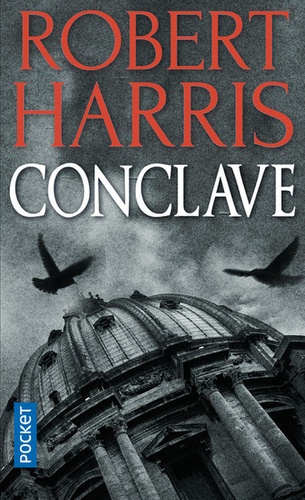

Harris neither hagiographises nor demonises. The election of a Pope ought, in theory, to come about through the cardinals seeking to know the will of God, and to lay aside ego – but cardinals are human, and like all of us, prone to the variety of human weaknesses and flaws. This is highly dramatic stuff – and it plays right into Harris’ strengths and interests as a writer – many of his books have examined institutions and individuals in positions of power, and the kinds of conflicts and corruptions the powerful may experience, and also, how power might be used responsibly.

.jpg)
And what makes it different from any other elite gathering where an election to a position of power is being sought, is that (in theory at least) the cloistered, reflective series of arcane rituals, the periods of silence, the absence of computers, phones, reading material other than sacred texts, are all designed to help each of them listen for the still, small voice of God to help them make the best choice for their Church itself, their flock, their faith, and the needs of the world. After all, 118 elderly men, the second tier of seniority in the Catholic church, gathered, from all over the world, to elect one of their number as the Supreme Head of their worldwide organisation, where is the drama in that? Where (some might argue) is its importance or relevance?Ĭardinals processing towards voting in the Sistine Chapelįor the however-long-it-takes for one of them to get the requisite two-thirds majority winning Pope vote, the cardinals have to remain sequestered from the world, without either communicating with it, or receiving communications from it. This particular book, based as it is around the election of a new Pope, might seem irrelevant, peculiar, or dull, depending on the reader’s sense of what drama is, and what their view of religious organisations might be. He understands the dramatic drive for narrative, and necessity for the unexpected, without sacrificing everything else for narrative drama. He is also a creative and imaginative writer, able to imagine into character and create living breathing individuals, with flesh on their bones, not merely ciphers standing for particular viewpoints. Robert Harris’ prior existence as a political journalist always informs his writing, bringing specific skills to his novels: being concise, not overwriting, clearly giving information and opening out moral arguments in ways which are far from dry and academic he is an excellent communicator. ‘No sane man could possibly want the papacy’ : Listening for the still, small voice


 0 kommentar(er)
0 kommentar(er)
